This is the story of the enviable legacy of an icon of commerce, a man believed by many to have been the wealthiest man in West Africa.
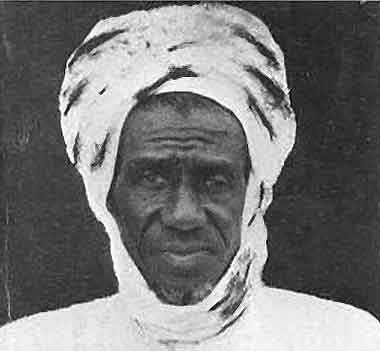
The Dantatas are an enigmatic clan. Dantata as a name in itself has come to symbolize one of the most enduring legacies of big-time business and all that is bold in enterprise on the African continent. Fifty three years after the death of the clan’s patriarch, Alhaji Alhassan Dantata, the empire he built remains a major player amongst conglomerates doing business in this part of the world.
Thus wherever the name Dantata is mentioned, it conjures the image of tons of money cascading and colliding to form the famous groundnut pyramids of Kano. The Danatatas are synonymous with business. Their businesses span every sector of the economy. They are into building construction, transportation, manufacturing, petroleum exploration and marketing, import and export, agriculture, trading, general merchandising, real estate etc. Today, the Dantata organization is worth several billions of naira. The symbol of the Dantata dynasty is billionaire businessman and philanthropist, Alhaji (Dr) Aminu Dantata OFR. He has transformed what started out as a trading concern established by his late father, Alhaji Alhassan Dantata, into a giant conglomerate, whose tentacles spread across the nation, some neigbouring West African countries and overseas.

Today, Alhaji Aminu Danata bestrides the business firmament like a giant iroko tree. He is Chairman of the Dantata Organization Limited, whose precursor was Alhassan Dantata and Sons. No doubt, the commercial and industrial progress of Kano State and Nigeria will not be complete without the mention of the Dantatas. The business savvy and entrepreneurship of the family metamorphosed into the Dantata Organization. It is an organization whose business tap root was located in the historic Western Sudan and Trans-Saharan trade routes of which Kano was pivot.
The arrow head of this pioneering business effort was Alhassan Dantata. The Kano History Bureau has done an elaborate research into the life of this giant of commerce. Their account seems to be the most comprehensive one about the founder of the Dantata business empire.
He was born at Bebeji near Kano in 1877 in present day Kano State into an Agalawa trading family. His father was a wealthy trader and caravan leader called Madugu Abudullahi, while his mother was also a trader of importance in her own right, who held the title of Madugu Amarya.
Abdullahi was himself the son of another prosperous merchant, Madugu Baba Talatin. It was he, who brought the family from Katsina, probably at the beginning of the nineteenth century, following the death of his father, Ali. After the death of his father, Alhassan’s mother relocated to Accra then in the Gold Coast (now Ghana), where she engaged in trading. She later became one of the wealthiest Hausa traders.
Madugu Amarya, Alhassan’s mother had left her children in Bebeji in the care of an old slave woman simply known as Tata; from which circumstance young Alhassan became known as Alhassan Dantata (son of Tata) because of her role as his foster mother.
Alhassan, in the absence of his parents started out as a Quaranic student (almajiri) in Bebeji. The life of the almajiri had been difficult as he had to fend for himself and his malam (teacher) and at the same time study the Quran. Alhassan worked and even succeeded at the insistence of Tata in saving. His asusu (money box made out of a pottery vessel) purchased by Tata and set in the wall of the house can still be seen in Bebeji.
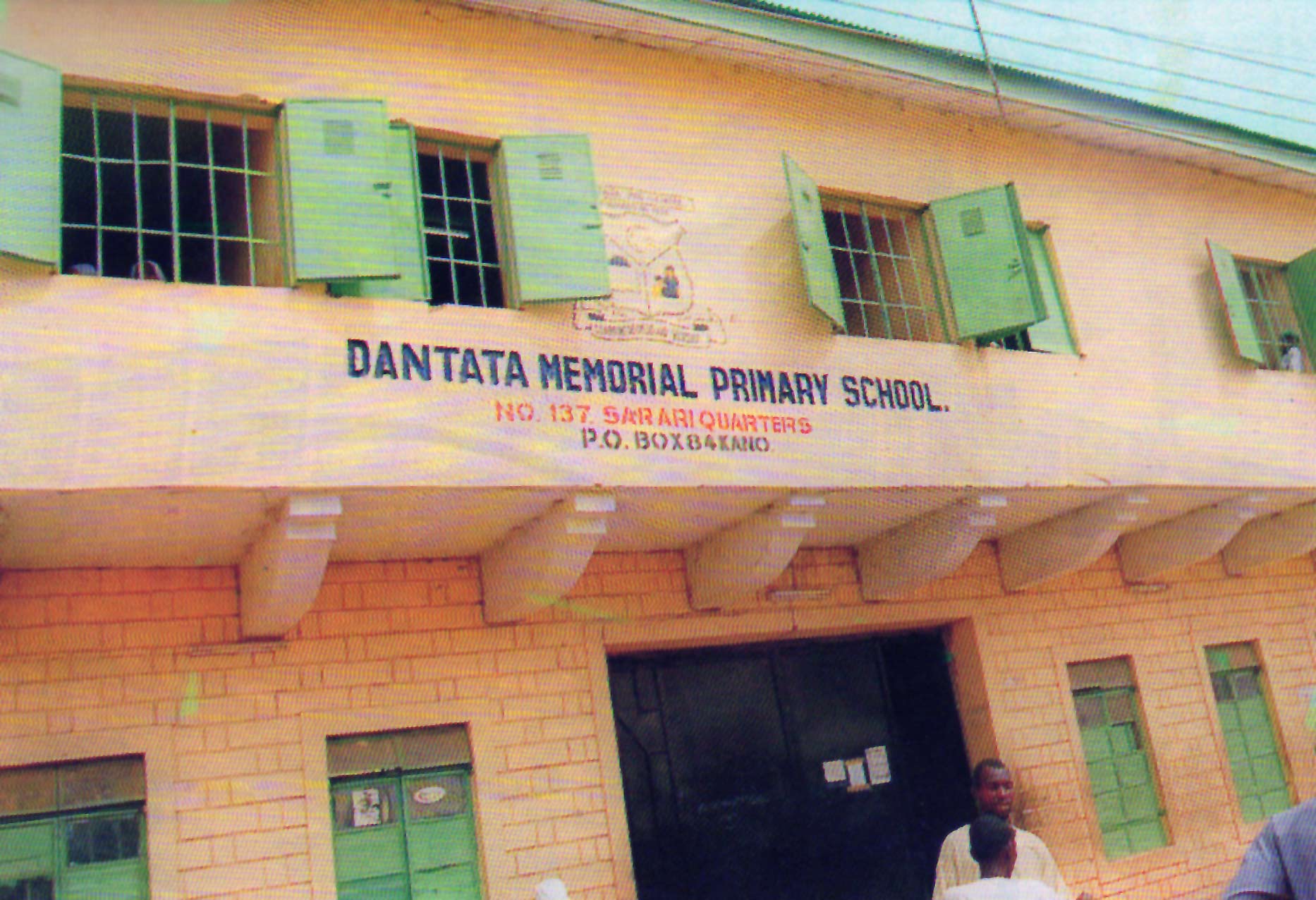
When he was about 15 years, Alhassan joined a Gonja bound caravan to see his mother in Accra. He purchased some items from Bebeji which he sold on the road, and the rest in Accra. When he arrived in Accra, he was delighted hoping that his mother would allow him live with her without doing any work, since she was one of the wealthiest local traders. After a brief rest, she took him to another malam and asked him to stay with him until he was ready to return to Kano. After a brief sojourn in Accra, he returned to Bebeji. During the Kano Civil War of 1893 and 1894, Bebeji was sacked and Alhassan was reportedly captured by the invaders. But after the war, he redeemed himself. He witnessed the British invasion of Kano in 1903. He remained in Bebeji until the dust settled and set out to Accra, Kumasi and Sekondi by sea and back to Lagos. Alhassan was one of the pioneers of this route.
For several years, he carried his kolanuts by sea from Accra using the steamer to Lagos where he usually sold it to Kano-bound merchants. By this time, he was relatively wealthy. In 1906, he began broadening his interests by trading in beads, necklaces and European clothes, among other things. His mother who had never remarried, died in Accra about 1908, and he thereafter generally restricted his operations to Lagos and Kano, although he continued to visit Accra.
Before Alhassan Dantata settled in Kano permanently, he visited Kano City only occasionally from Bebeji to either purchase or sell his wares. It was during the time of the first British appointed Emir of Kano, Abbas (1903-1919) that Alhassan Dantata decided to establish a home in Kano. He purchased his first house in Sarari area (an extension of Koki). At that time, the area was uninhabited, apart from the house of Baban Jaki (at the end of Koki), up to Kofar Mazugal. In fact, the area was called Sarari because it was empty and nobody wanted the land. Alhassan Dantata built his first house in that area and was able to extend freely.
Dantata started to acquire urban land as early as 1917 in the non-European trading site (Syrian Quarters), when he acquired two plots at a fee of 20 pounds. He acquired and built several warehouses in Kano. Fame and fortune began to trail Alhassan Dantata when the Europeans started to show an interest in the export of groundnuts, and they contacted Kano merchants through Emir Abbass and their chief agent, Adamu Jakada. Meanwhile, Alhassan contributed greatly towards breaking the monopoly of hoarders. He flooded the markets severally with grains to force the prices of goods down.
Later in 1918, Alhassan Dantata was approached by the Niger Company to help purchase groundnuts for it. He was already familiar with the manner by which people made fortune by buying cocoa for the Europeans in the Gold Coast. He plunged head-long into the groundnut trade and never looked back. He had several advantages over his contemporaries. He could speak some English, thus he could negotiate more directly with the European traders for better prices and he had accumulated a large capital for the successful take off of the business.
Besides, Alhassan Dantata had excellent book keeping skills, was frugal and unostentatious. He knew the rudiments of accounting, and with the help of Alhaji Garba Maisikeli (his financial controller for 38 years) every kobo was accounted for everyday. It is on record that Alhassan Dantata was hard-working and always around to provide personal supervision of his workers. His bank account did not attract an interest because it is regarded as usury in Muslim law. Alhassan’s wife, Amina Umma Zaria, mother of Aminu was his chief agent among the women folk. She was a businesswoman in her own right. She established agents all over Kano City, who distributed goods to women in Kano, and made sure they collected money for the goods supplied.

By a combination of native intelligence, wit and business acumen, Alhassan Dantata, as soon as he made an entry into the groundnut purchasing business, came to outwit his rivals and dominate the trade. In fact, by 1922, he became the wealthiest businessman in Kano, pushing prominent Kano businessmen like Umaru Sharubutu and Maikano Agogo to the second and third positions respectively. He reportedly became the first Kano businessman to utilize a bank when the British Bank of West Africa precursor of Standard Bank, now First Bank was opened in Kano in 1929, by depositing twenty camel loads of silver coins. When he died on August 19, 1955, he was arguably the wealthiest man among the indigenous people in West Africca. In 1949, he contributed property valued at ten thousand, two hundred pounds to the proposed Kano Citizens Trading Company, for the establishment of the first indigenous textile mill in Northern Nigeria.
Having established himself as a reliable and effective businessman, he became the Chief Produce Buyer especially of groundnuts for the Niger Company (later U.A.C.). He was reputed to have purchased about half of all the groundnuts purchased by the Niger Company in Northern Nigeria. Later, he applied for a license to purchase and export groundnuts in 1940, just like the U.A.C. However, the request was not granted because of the Great Depression and the Second World War. Clearly, Alhassan Dantata was one of the major builders of the famous groundnut pyramids of Kano.
In 1953, he became a Licensed Buying Agent (L.B.A.),that is a buyer who sells direct to the Marketing Board instead of another firm. All these apart, Dantata had many business connections both in Nigeria and in other West African countries, particularly the former Gold Coast. He traded not only in groundnuts but in other merchandise. He traded in cattle, kolanuts, clothes, beads, precious stones, grains, rope and sundry items.
When Alhaji Alhassan Dantata finally settled in Kano, he maintained agents, mainly his relations in other places. For instance, Alhaji Bala, his brother took care of his business in Lagos. Dantata had on his payroll, mainly Igbo, Yoruba and Hausa people as wage earners. They worked as clerks, drivers and labourers.
By the time Alhassan Dantata died in 1955, he had established a flourishing business concern that had tentacles all over the country. His entire estate was sub-divided according to Islamic law among the eighteen children who survived him. The baton of leadership was passed on to Ahmadu Dantata, Alhassan’s eldest son. While other family businesses established in Kano City by the likes of Kundila of Makwarari, the wealthiest man at the end of the nineteenth century, Maikano Agogo of Koki Ward, Baban Jaji, Abba Dungurun and others, had floundered and died, the Dantata dynasty continued to wax even stronger.
No doubt, Alhassan Dantata was a devout Muslim. He was one of the first northerners to visit Mecca via England by mail boat in the early 1920s. He loved reading the Quran and Hadith. He had a personal mosque in his house and established a Quranic school for his children. He paid Zakkat annually, according to Islamic injunction and gave alms to the poor every Friday. He belonged to the Qadiriyya Brotherhood.
Dantata was never a politician in the true sense of the term. He was close to the colonial government because of his enormous wealth. He had to be in the good books of the colonial government and then, maintain a cordial relationship with the Emir of Kano. He was nominated to represent commoners in the reformed local administration of Kano and in 1953 was made a Councillor in the Emir’s Council, the first non-royal individual to sit in the council. Alhassan Dantata was therefore a member of the highest governing body of Kano in his time. He was also appointed to mediate between NEPU and NPC in Kano in 1954. However, it was clear that his political sympathies were with the NPC.
Perhaps, the success story of the Dantatas could be attributed to the desire of his heirs to keep the family business afloat. Besides, Alhassan Dantata had cultivated a friendship with the Europeans who enabled him enjoy credit facilities. The goodwill with the Europeans obviously continued even after his demise. Alhassan Dantata embraced the idea of book-keeping. He was the only indigenous merchant to do so. This obviously helped the business a great deal. He also had a stable crop of reliable agents.
Ahmadu, on completion of his Muslim education, joined his father’s business, purchasing agricultural produce and distributing imported European goods. He became the Chairman of the family company, Alhassan Dantata and Sons. Members of the family remained united until 1959 when his younger brother, Sanusi Dantata broke away and formed his own company namely Sanusi Dantata and Sons. He kept the family business afloat until his death in 1960. Apparently, Alhaji Aminu Dantata has today, re-engineered the family business and transformed it into a modern and successful conglomerate. Aminu, born in 1931 attended the Dantata English and Arabic School. As soon as he completed his post-primary education, he joined the Dantata Organization for a career in business. He took over the leadership of the family business after the death of his elder brother, Ahmadu Dantata.
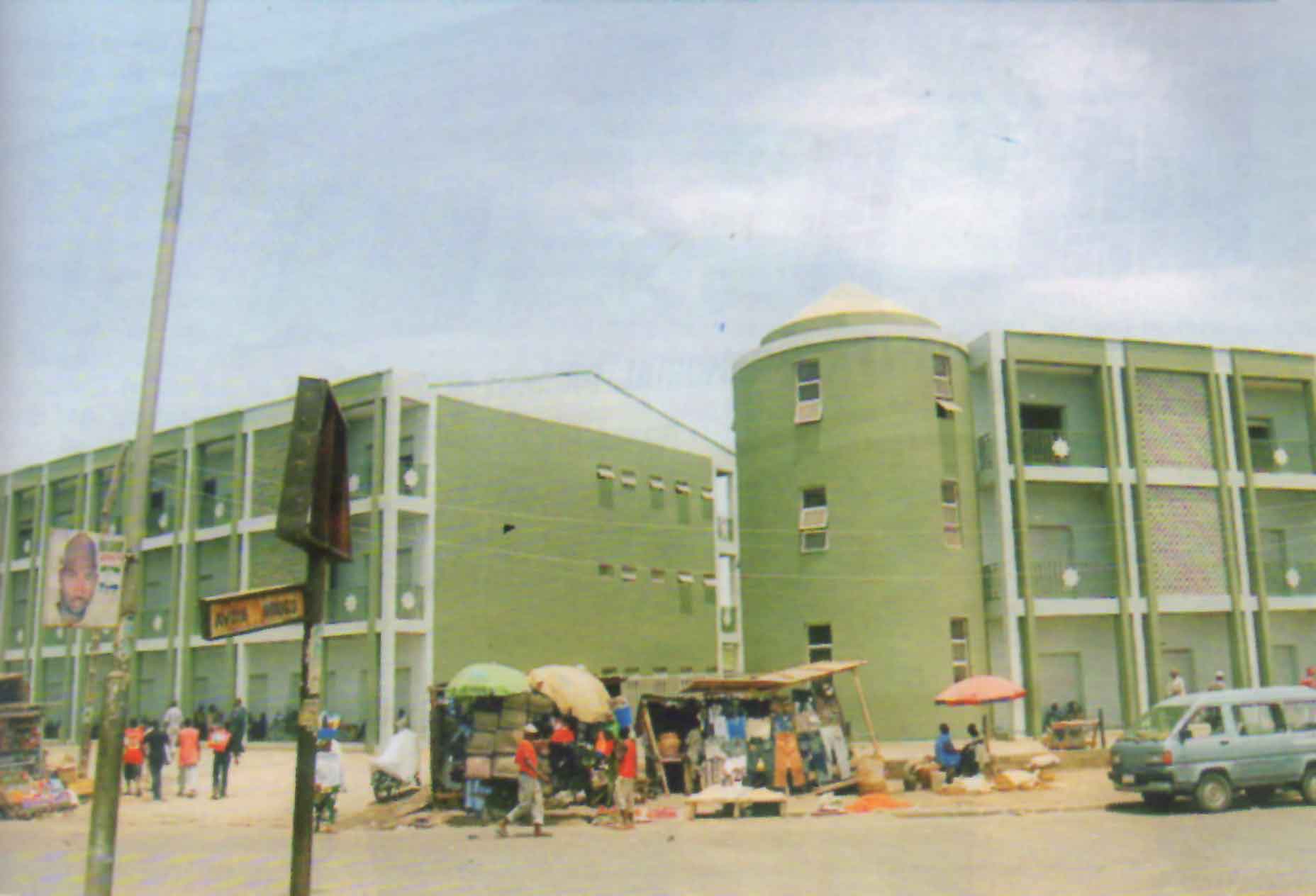
Today, Dantata Organization has everything that defines a modern conglomerate. It has investment in virtually all spheres of the Nigerian economy. Its tentacles are everywhere ranging from property and finance to oil and fertilizer. Companies in the group include Namco Nigeria Ltd., Namco Technical, Main Line Transport Ltd., Dantata Motors Ltd., Nigeria Sugar Products Ltd., Bebeji Oil Company; Dantata Investments and Securities Ltd., Dantata Properties Management Company Ltd., Express Petroleum Ltd., Fertilizer Processing Company Ltd., Agro Nutrients and Chemicals Company and Associated Mining Industry Ltd.
The building construction arm of the organization made a good start in 1964, when it became one of the first indigenous construction companies to handle a multi-million naira building construction project which is the Nigerian Civil Aviation Centre, Zaria.
It has also undertaken major projects in Kaduna such as the Army Barracks. It built the ultra-modern Kano State High Court. It also built secondary schools and health centres on many locations in the state.
Aminu Dantata: Great Son of a Giant
Alhaji Aminu Dantata obviously ranks as one of Africa’s foremost businessmen. He bestrides the world of business like a colossus. His genius has helped transform a large family trading enterprise into a modern conglomerate. This quiet philanthropist sits atop one of the biggest family businesses not only in Nigeria but also on the African continent. He is both a successful businessman and a rare philanthropist.
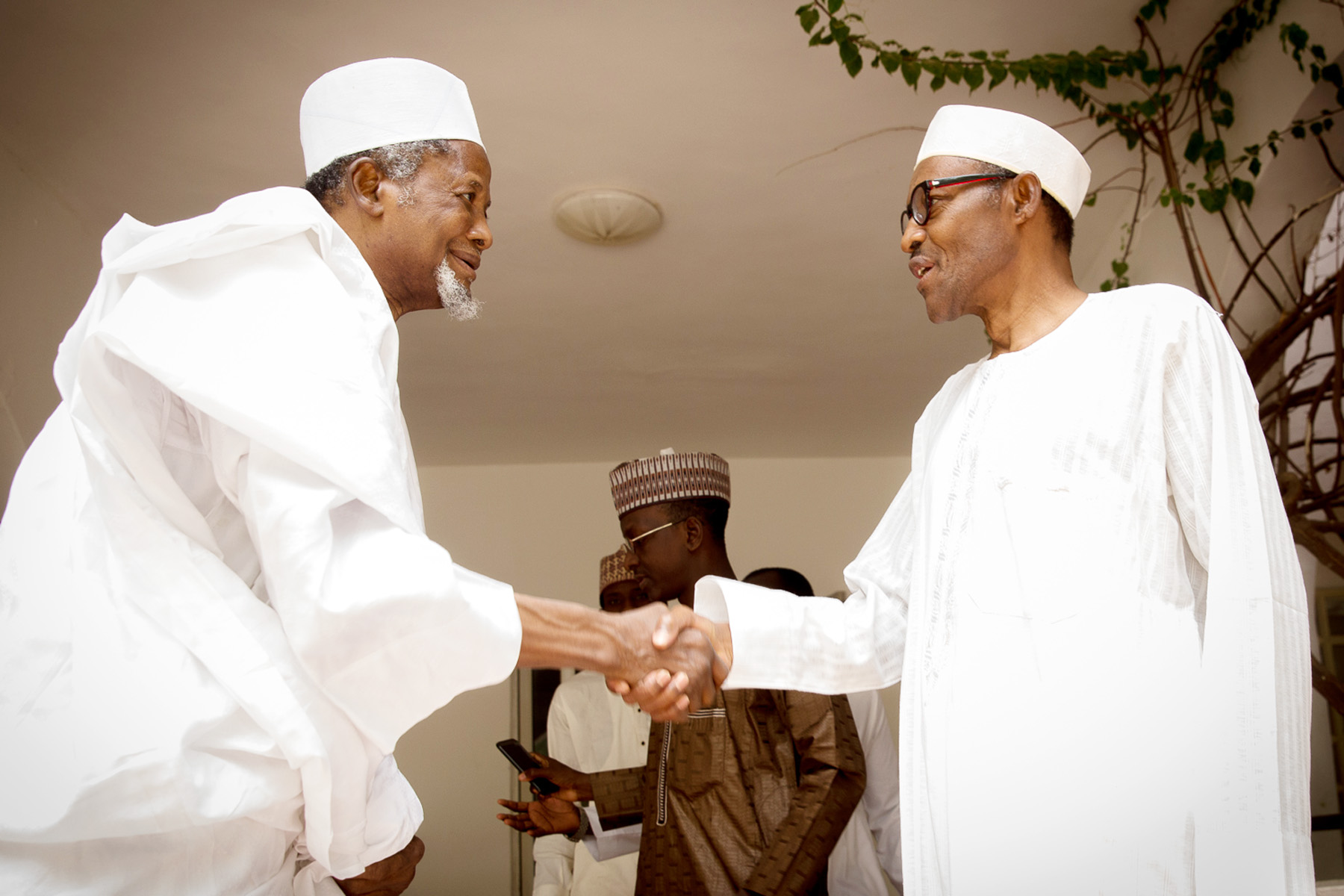
The Dantata Organization which he oversees as Chairman compares favourably with multinational companies in terms of asset base, scope, magnitude and liquidity. Aminu Dantata is also Chairman of several other blue chip companies like Northern Nigeria Flour Mills, Mentholatum Nigeria Limited, Raleigh Industries Limited and Universal Spinners Limited. He is also a director in Stallion Group, Cement Company of Northern Nigeria and a host of other companies.
Having achieved unqualified success in the field of business, Alhaji Aminu Dantata has set his sight on philanthropy. He is widely regarded as one of the greatest philanthropists in Nigeria. He has touched several lives and institutions with his generosity and acts of munificence. He is noted for his several acts of charity which have helped turn several hopeless situations into joy and happiness. He apparently derives tremendous pleasure from giving.
Aminu Dantata was born in Kano in 1931. He attended the Quaranic School at a tender age and was privately taught by Alhaji Garba Maisikeli, his father’s accountant. He attended Dala Primary School in 1939 and completed his primary education in 1944. Between 1945 and 1949, Aminu attended the Dantata English and Arabic School. Naturally, he joined the family business on completion of his post-primary education. He worked with the family business namely Alhassan Dantata and Sons. With the death of his brother, Ahmadu, he became the Managing Director of the Company. His rare leadership qualities were spotted early despite being the thirteenth child in a family of 18 children.
Apart from business pursuits, Alhaji Aminu Dantata was a frontline politician in the first republic. He was an elected member of the dissolved Northern House of Assembly (1961-1965) representing Kura District in Kano. He was also a member of Kano Provincial Council (1961-1965). At the advent of military rule, he was appointed Commissioner for Economic Planning, Trade and Industry by the first Military Government of Kano State in 1967. He is widely regarded as one of the builders of modern Kano State. He resigned voluntarily in 1973 to devote himself to full time business. Generally, Alhaji Aminu is lauded for laying the foundation for the economic successes recorded by the administration of Governor Audu Bako.
As a member of the Northern House of Assembly, Alhaji Aminu showed himself to be a great patriot by kicking against economic domination by foreigners. Some of the things which worried him were employment of Nigerians in commercial firms, control of produce exportation, government contracts, control of the civil service as well as credit and money lending. Aminu Dantata was the brain behind a transport organization called Kano Transport Syndicate which was established to break the monopoly of the Lebanese who dominated road haulage between Lagos and Kano in the 60s.
His contribution to the growth of commerce and industry in Nigeria and Kano State in particular has been widely acknowledged. He was conferred with the national honour of Officer of the Federal Republic (OFR) by the Federal Government in recognition of his sterling contribution to the progress of Nigeria. Again, he has been honoured severally by Nigerian universities with honorary degrees.
Eight years ago, he was made Chancellor of the newly established Katsina Islamic University in recognition of his contribution to the growth and development of Islam. Alhaji Aminu Dantata has set a record as a philanthropist. A few years ago, he donated the sum of N500 million towards the completion of the National Mosque in Abuja. At a reception held in his honour after his investiture as Chancellor of Katsina Islamic University, the then Kano State Governor, Malam Ibrahim Shekarau disclosed that Alhaji Aminu Dantata had completed projects worth N400 million in all the 44 local government councils in Kano State. He listed the projects as boreholes, roads, healthcare facilities and mosques.
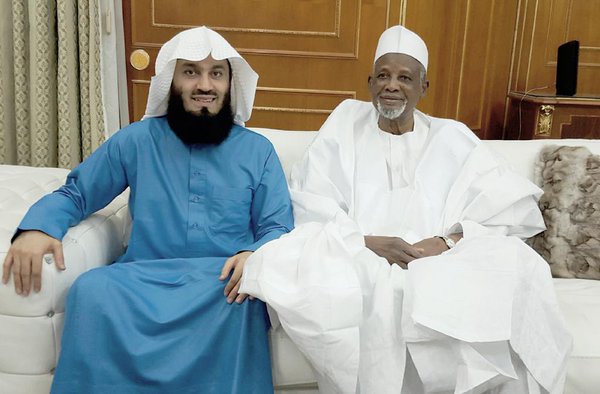
What is more, Shekarau informed his audience that Alhaji Aminu Dantata had also made a N300 million donation to Kano University of Technology, Wudil, for the development of physical infrastructure. Alhaji Aminu Dantata also pledged the sum of one billion naira towards the development of physical infrastructure at the Katsina Islamic University. This gesture, he said, would be fulfilled within two years. Donations to lofty projects are quite apart from what he does to the poor individually. Shekarau described Alhaji Aminu Dantata as a generous person who has dedicated his wealth to the promotion of the living standard of the less privileged.
Shekarau, who was a Principal Personal Secretary to Alhaji Aminu Dantata, when he served in government, also described his mentor as someone who shuns publicity inspite of his numerous acts of charity and philanthropy. As his Principal Personal Secretary, he said, numerous acts of charity and philanthropy were channelled through his office to several beneficiaries. Shekarau noted that Aminu Dantata played a solid role in the development of Kano State.
During his investiture as Chancellor of Katsina Islamic University, Aminu Dantata summed up his own convictions in the following words: “Dear brothers and sisters, I want to remind you of a very important responsibility assigned us by Almighty Allah. This responsibility is the feeding and general welfare of the needy.” On why he accepted to serve as Chancellor, he said: When I was invited to serve in the capacity of the Chancellor of that university, I had accepted it in good faith and with the sole intention of giving my contribution towards the development of Islamic education. I feel by using the last part of my life in realizing this important goal, it will be the biggest honour God will do to me and I am determined to ensure it succeeds.” Speaking further about wealth, he said, “Allah has ordained the wealthy individuals to give assistance to the needy by categorically directing that they should give from what he (Allah) has given them in accordance with Islamic injunctions.”
As he advances toward the age of 90, Alhaji Aminu Dantata has quite naturally, scaled down his activities in Dantata Organization. His first son, Tajudeen serves as the Group Managing Director. Tajudeen is assisted by his siblings namely Abubakar Saddiq Dantata who is the Deputy Group Managing Director and Hassan Aminu Dantata who is Managing Director of the Fertilizer Processing Company. Another of his brothers, Bashir Aminu Dantata is the Managing Director of Associated Mining Industries Limited.
With the torch passed on to the younger generation of the Dantatas, the Dantata Organization apparently continues to wax stronger and remains a leading light in commerce and industry in the nation’s business firmament. The conglomerate generates wealth and creates employment for thousands of Nigerians. This is a salute to the vision and foresight of Alhaji Alhassan Dantata and his heirs who have kept the flag flying and made the empire one of the most enviable family business success stories in the world.

Ohinoyi of Ebiraland, HRM Ado Ibrahim, Passes Away At 94
Alaafin Of Oyo, One Of Nigeria’s Most Prominent Kings, Lamidi Adeyemi Dies At 83
Former Nigerian Senate President, Dr Joseph Wayas Dies In London
Emir Of Gaya Alhaji Ibrahim Abdulkadir Dies In Kano